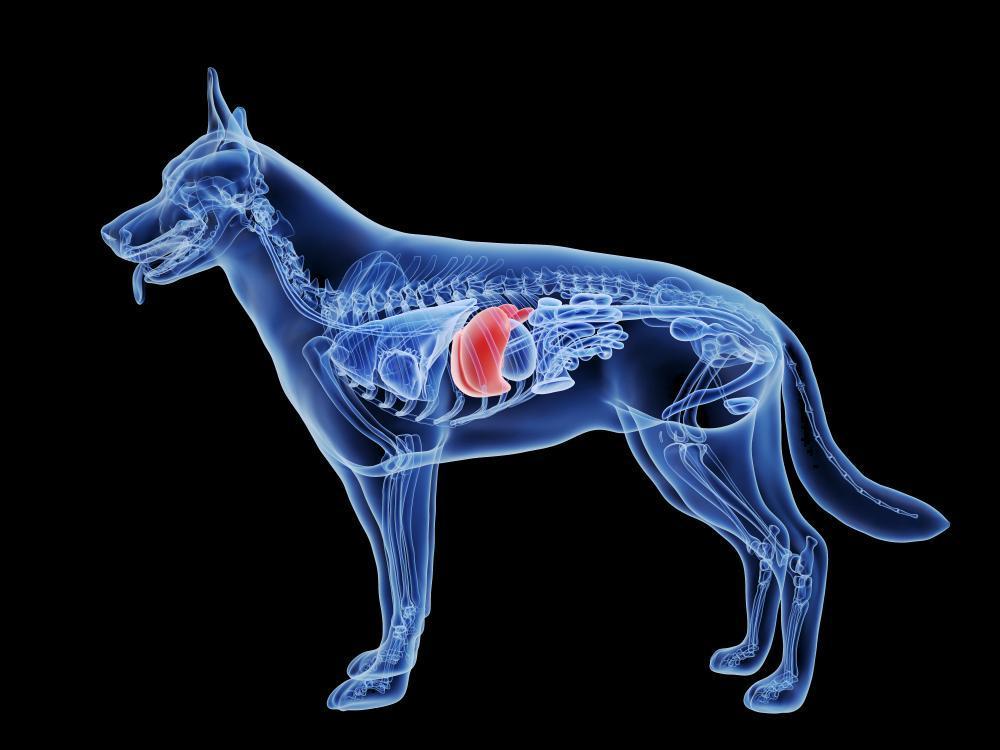
Does the Breed of My Dog Influence their Test Results?
- May 19, 2022
- 2 mins 56 secs
It is thought there is over 300 recognised breeds of dogs around the World. The American Kennel Club recognise around 190 of them, and the UK Kennel Club recognise 221. For those of us who have a preference for a certain breed we may fondly discuss our love of the Labrador’s happy-go-lucky nature or the trainability of the poodle. It is clear there are breed differences, which suggests a genetic blueprint of certain traits and characteristic. We also know there are genetic predispositions to certain health issues in various breeds. But would you be surprised to learn that there may be breed differences in clinical measurements?
A group of researchers, hoping to establish genetic differences in clinical measurements in humans decided that dogs most closely resemble human parameters and so set out to test eight different breeds for 40 clinical markers.
Findings Here
This is what they found.
For the majority of clinical markers, the researchers couldn’t find any significant genetic variants, but for three, they did.
Researchers found a variant (SNP) on the gene known as GPT which codes for ALT. A causal variant linked with this SNP could increase expression level of GPT, which would lead to the production of more ALT protein.
Belgian Shepherds, Cavalier King Charles Spaniel, Doberman, Finnish Lapphund, and Newfoundland were breeds identified with a significant variation on this gene compared to other tested breeds, suggesting they may have a higher-than-average ALT level as standard.
Additional data has suggested that elevated ALT doesn’t lead to metabolic disease per se and in fact metabolic disease is what leads to elevated enzymes. Therefore, it’s essential to consider test results in context and alongside other results, signs, and symptoms.
What Could Cause Elevated Liver Enzymes in My Dog?
The researchers found variations in the gene which codes for this protein in the Finnish Lapphund, German Shepherd and Newfoundland.
Again, it would be an important consideration to make when monitoring these test results over a period of time, in light of any correlating signs and symptoms.
The last marker is one that is particularly interesting.
Whilst genes are fixed, we can often influence their expression and in this case, we can also mitigate stress in our dog’s life to regulate that overarching response.
If you are planning a visit where your dog will need a physical examination:
We know there are genetic glitches which contribute to the development of certain health issues, like the filaggrin mutation in skin health, or glitches in zinc absorption in certain sled dogs, but this information further highlights how complex our pet’s health issues truly can be.
Can Genes Result in Poor Skin Function?
Why Zinc is Important for Your Dog
If you feel overwhelmed by your dog’s health issues, then please check out our services to see how we can help.
Thanks for reading,
MPN Team
A group of researchers, hoping to establish genetic differences in clinical measurements in humans decided that dogs most closely resemble human parameters and so set out to test eight different breeds for 40 clinical markers.
Findings Here
This is what they found.
For the majority of clinical markers, the researchers couldn’t find any significant genetic variants, but for three, they did.
Alanine transaminase: ALT
ALT is one of the more commonly known liver enzymes. ALT level in blood is used for the diagnosis of liver disease and injury in human and veterinary medicine.
Researchers found a variant (SNP) on the gene known as GPT which codes for ALT. A causal variant linked with this SNP could increase expression level of GPT, which would lead to the production of more ALT protein.
Belgian Shepherds, Cavalier King Charles Spaniel, Doberman, Finnish Lapphund, and Newfoundland were breeds identified with a significant variation on this gene compared to other tested breeds, suggesting they may have a higher-than-average ALT level as standard.
Additional data has suggested that elevated ALT doesn’t lead to metabolic disease per se and in fact metabolic disease is what leads to elevated enzymes. Therefore, it’s essential to consider test results in context and alongside other results, signs, and symptoms.
What Could Cause Elevated Liver Enzymes in My Dog?
Fructosamine
Fructosamine is a stable condensation product of glucose with serum proteins. It is used as a biomarker for diagnosing and managing diabetes because fructosamine reflects the average blood sugar concentration over the preceding 2 weeks.
The researchers found variations in the gene which codes for this protein in the Finnish Lapphund, German Shepherd and Newfoundland.
Again, it would be an important consideration to make when monitoring these test results over a period of time, in light of any correlating signs and symptoms.
The last marker is one that is particularly interesting.
Stress During Physical Exam
The researchers identified an experimental-wide association with stress during physical examination at chromosome 1. Two breeds, Cavalier King Charles Spaniels and Dachshunds were the most significant. Dogs with the A allele of BICF2P1232291 showed more stress during physical examination.
Whilst genes are fixed, we can often influence their expression and in this case, we can also mitigate stress in our dog’s life to regulate that overarching response.
If you are planning a visit where your dog will need a physical examination:
- Limit stress before the visit,
- Engage in calming and enriching activities to activate that parasympathetic nervous system,
- Consider the use of a thunder jacket or similar,
- Allow your dog to decompress after the examination – again offering activities to activate that parasympathetic nervous system (chewing, enrichment, sniffing etc.)
What Does All This Mean?
This data suggests genetic variations in three clinical markers in certain breeds. However, these researchers only tested eight breeds. It would be interesting to establish how the data may change when testing additional breeds, especially when there are so many around the world.
We know there are genetic glitches which contribute to the development of certain health issues, like the filaggrin mutation in skin health, or glitches in zinc absorption in certain sled dogs, but this information further highlights how complex our pet’s health issues truly can be.
Can Genes Result in Poor Skin Function?
Why Zinc is Important for Your Dog
If you feel overwhelmed by your dog’s health issues, then please check out our services to see how we can help.
Thanks for reading,
MPN Team
Customer Reviews
Explore related products
Related articles

General HealthDogsLiver Health
Why Cooked Food is Best for Your Pet’s Kidney and Liver Disease
May 30 2024
•
6 mins 55 secs

General HealthDogsLiver Health
How to Support Liver Disease Naturally
Dec 21 2023
•
8 mins 30 secs

General HealthDogsLiver Health
Can Diet Cause Raised Liver Enzymes?
Nov 16 2023
•
6 mins 20 secs

General HealthDogsLiver Health
Why Does My Dog Urinate So Much?
Dec 08 2022
•
5 mins 30 secs

General HealthDogsLiver Health
How To Support My Dog’s Liver Shunt
Jun 20 2022
•
4 mins 46 secs

General HealthDogsLiver Health
Does the Breed of My Dog Influence their Test Results?
May 19 2022
•
2 mins 56 secs

General HealthDogsLiver Health
What Could Cause Elevated Liver Enzymes in My Dog?
May 17 2022
•
6 mins 4 secs

General HealthDogsLiver Health
4 Superfoods for Liver Health in Dogs
Jan 19 2022
•
4 mins 15 secs

General HealthDogsLiver Health
A Brief Guide to Liver Function in Pets
Jan 17 2022
•
4 mins 16 secs

General HealthDogsLiver Health
Why Does My Dog Need Minerals – Part Two
Sep 23 2021
•
12 min read

General HealthDogsLiver Health
Why Does My Dog Need Minerals – Part One
Sep 22 2021
•
7 min read

General HealthDogsLiver Health
Bacterial Overgrowth – More Common Than You Think
Aug 04 2021
•
6 min read

General HealthDogsLiver Health
The Lowdown on Liver Shunts in Dogs
Jun 28 2021
•
6 min read

General HealthDogsLiver Health
5 Reasons Your Dog May Have Bad Breath
Nov 30 2020
•
7 min read

General HealthDogsLiver Health
Does My Dog Have a Vitamin Deficiency?
May 04 2020
•
15 min read

General HealthDogsLiver Health
Ultimate Natural Guide for Pets: Liver Disease
Apr 30 2020
•
15 min

General HealthDogsLiver Health
7 Top Reasons to use Clay in your Dog’s Diet Regime
Feb 20 2020
•
5 min read

General HealthDogsLiver Health
Itching has become such an epidemic
Feb 18 2020
•
6 min read
✕

















